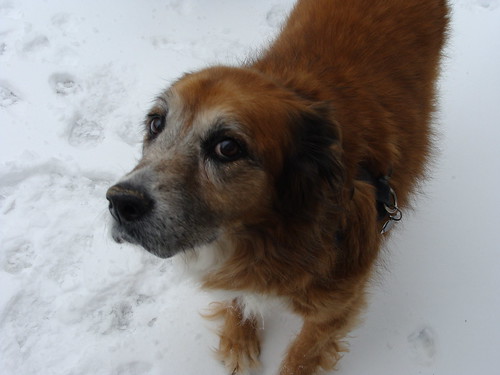So it’s been a whirlwind couple of weeks with dog, as her recovery from the dermatological surgery took an ugly turn. Her motor functions began to degrade (sharply and noticeably, especially after the surgery collar was removed for good). She had lost sight in her left eye, but was struggling bravely along with an increasing number of symptoms like an apparent inability to keep her feet from curling up at awkward moments. At this point, there were two main possibilities which were a stroke (much less likely, good prognosis for recovery) and a tumor in her brain or spine (very likely due to breed, preexisting symptoms, and age probably means she’s fucked).
Her dermatologist recommended an MRI and consult at Auburn U, which is a 3 hour drive plus the process of scanning itself, but I saw no point to it given that there is no likely scenario where I will consider more surgery and chemotherapy on a dog going on her 14th year, especially having gone through that a number of time with humans. After concluding a week of steroids that seemed to help with some symptoms, she had a seizure grand mal for what were probably the longest 10 minutes of our time together. At the ER afterwards, she was sedated and put under observation, and then delivered a repeat performance the following afternoon (I think the vet thought I was exaggerating about the extent of the earlier seizure). It was noted that she was apparently now blind in both eyes.
At that point, she was placed on phenobarbital, and seems to have the seizures under control although she oscillates rapidly between the lethargy and hyperactivity. Since she’s blind and her motor control is now worse than ever before, that means a lot of circles. The field across the street proved a safer environment than our house since the concrete is slippery, so we’ve been getting a lot of laps out in the grass. She still eats voraciously and drinks, although she requires a hand to avoid faceplanting in her dish. Going to the bathroom is a crapshoot (LOL) as I have to be pretty quick to provide support when she decides it’s time. Nobody wants to see a repeat of last week’s poop backstroke.
And sleep, well, sleep is interesting. This period is a strong argument for crate-training preemptively, since now we have no way to comfortably confine her without inducing panic (and it’s hard to get a dog to enter a cage through the traditional means when the only way she’s known of them is as prisons at the vet). So she sleeps in between us, and stirs every 2-3 hours with a violent explosion of movement, often including most of her legs working together. There was a four hour block (I could see the clock from my position) where she snored happily while passed out on my chest, which I believe is sound support for her continuing to be an epic troll even in her declining health.
At this point, we’re allowing for the phenobarbital adaptation to take place to see what the situation is then (1-2 weeks). Obviously, euthanasia is the elephant in the room at every turn, since when combined with the earlier symptoms that spurred this thread it’s entirely possible that she’s simply coping with a great deal of discomfort that is not going to get better as she becomes steadily less independent. It’s tough to find a balance between what likely constitutes our selfish desires and her quality of life.
Anyway, we have the number of the home euthanasia vet, and it’s one day at a time. Yesterday she maxed out at 89 paces before busting her ass, today was already 127. One day at a time.
